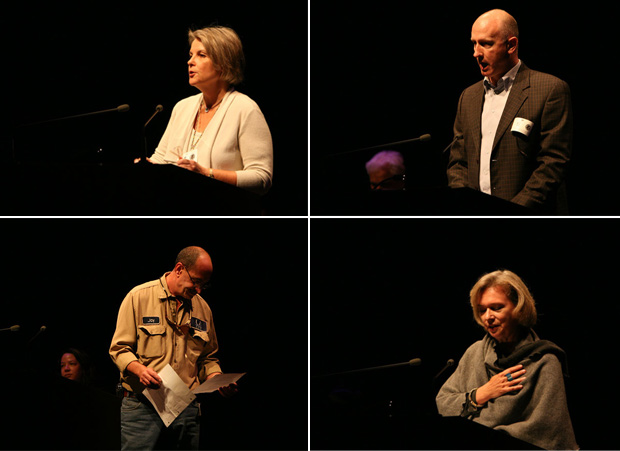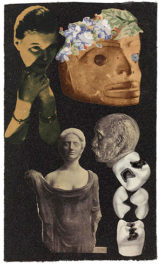It was an unusual day at the Villa. People wandered about with numbers clipped to their lapels. Intense conversations took place about Homer’s poetry, fueled by coffee and snacks. Visitors moved in and out of the auditorium, as if in and out of some strange combination of a church (temple?) and theater.
We were there for a daylong reading of Homer’s Iliad, a true community event. Each of the 135 different readers offered a unique voice and interpretation of the poem. Some were quiet and focused on the poetry of the language. Others were like actors on a stage, bringing the characters and emotions to life. Some had memorized their passages, and others read from handouts. One recited the original Homeric Greek, closing his eyes and seeming to bring the old poet back to life, all but singing the lines. There were readers as young as 6 and another approaching 100!
And from among all these many voices, no one like the other, the story unfolded. It was as if the poem were stitched together—a metaphor that ancient Greeks used to describe poetic composition—slowly, word by word, over nine hours of reading.

Four voices: Karol Wight, Guy Wheatley, Claire Lyons, and Jay Kurtz
That the poem hung together, that we could follow the story, understand the characters, and be moved by the tragic turns of fate, is testament to the power of the epic and the deep persistence of its themes, from antiquity to the present. When the last reader—poet Kathryn Hohlwein, founder of the Readers of Homer—intoned the laments of the Trojan women that bring the poem to a close, it was hard not to be moved.
However far distant the poem and the landscape of heroes and gods it describes, it remains absolutely current in its exploration of the human condition. I was fortunate to have been, for this one day, part of it.




Any chance of making a video of the proceedings and sharing it? It would be very interesting to hear and see something like that – for the people who cannot attend.
That’s a wonderful idea. We do have video of the event — but of course it’s quite long! Instead of posting the entire thing, we’ll post selected clips of individual readings. Look for them over the next couple of weeks — either here or on YouTube channel (www.youtube.com/gettytrust). Thanks for you comment!